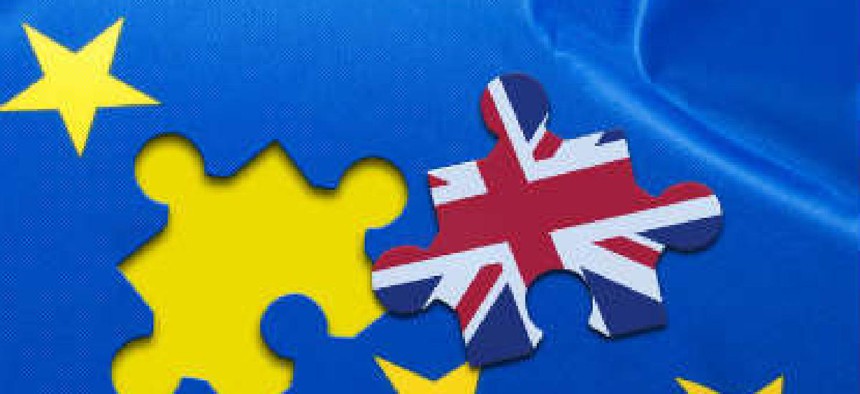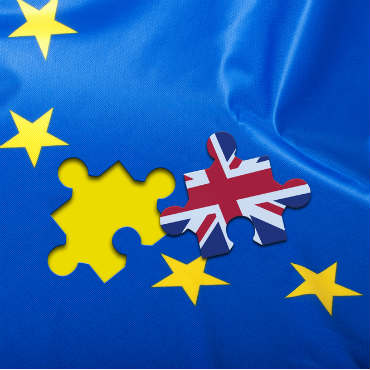Snapshots from a Europe trip during Brexit week

Steve Kelman found himself in London after the big vote, and offers a first-hand report.

I was in Europe for the last week -- mostly for a conference on public management research at Denmark's Aarhus University, which, as I discussed in a blog earlier this year, has emerged as one of the world's leading institutions for government management research. Since I was going anyway, I decided also to spend a few days before the conference in nearby Sweden, visiting friends and giving a talk about the U.S. elections.
From there I was to fly home to Boston via London. A missed connection, however, resulted in an unplanned 36-hour visit to London -- two days after the world was shaken by the British vote to leave the European Union.
(In the days before the vote, the referendum had already dominated the news in Sweden and Denmark every day.)
As the American media made clear, immigration to Britain had become one of the main issues for those wishing to leave the EU. And immigrants are indeed a major presence in London. All four of the hotel people I dealt with during my brief stay – two at the front desk, two at the breakfast restaurant – were immigrants from elsewhere in Europe. When I asked a construction worker near a building site what was being built there (disrupting a historic square), he couldn't understand my question and said a few largely incomprehensible things clearly influenced by Polish, the country from which many manual laborers come.
But there are also plenty of Swedes, French and Germans who have moved to cosmopolitan London to work, and the referendum was making them feel unloved. "We all feel we have been suddenly told we are unwelcome," one immigrant was quoted as saying. The parents of a Swedish friend who has lived and worked in London for almost a decade, and is married to an English woman, told me her son was deeply and personally saddened by the message of rejection the referendum sent.
Just like U.S. media, British reporting was quick with parallels to Donald Trump. London voted to stay in the EU, while working class towns in Northern England, hit by factory closures, voted to leave. Working-class Brexit supporters expressed distain for experts who predicted dire consequence if Britain left; in one extreme example, one Brexit leader announced he was taking up smoking, on the grounds that if the experts thought it was unhealthy, it must actually be healthy. There was also a split between younger, more internationally minded voters and older ones. In a few articles I saw, young people were quoted as saying they worried the exit from the EU would destroy their futures.
A few non-Brexit related observations:
1) Having eliminated paper checks a number of years ago, Sweden is now well on its way to eliminating cash. I experienced a dramatic illustration of this when I saw in the papers that the deadline to turn in Swedish currency that had been replaced by new designs was June 30. Since I had about $150 in currency left over from an earlier visit, I headed to a bank near my hotel to exchange it, only to be greeted by a sign on the counter, "We have no currency in this bank." (There are still ATM machines on the streets.) To turn in the old notes, I was told, I would need to put them in my bank account, impossible for me since I don't have a Swedish account. The advice was to go to a store and spend the old bills; stores were required to accept them through the end of June. I asked friends I met whether they ever carried cash – half said no, and half said they carried a nominal amount of 100 Swedish crowns (somewhat over $10).
2) While Sweden is eliminating cash, Britain is still keeping its old red telephone booths, a significant number of which I saw on the street in central London. To be sure, the number has been cut in half this century, but according to a 2014 report on National Public Radio, there are still 48,000 left! (I noticed some of the booths had been repainted black and offered Wi-Fi hotspots as well as traditional phones.) Nostalgia is alive and well.
3) When I checked in at my hotel in Sweden and asked if they had water bottles in the room, I was greeted, ever so gruffly, with the reply: "In Sweden we use tap water." My Swedish friends were divided about whether the front desk person wanted to say that Swedish water was so pure that no bottled water was needed or that water bottles were bad for the environment.
4) Over half the restaurants where I ate in Sweden did not provide sugar together with a cup of coffee ordered at the end of the meal. Too unhealthy, my friends stated. (I note that many of my American friends in Boston, Sweden's outpost in the New World, often don't serve sugar with coffee anymore either.) London, though, now features a giant "M&M World" store, with larger-than-life candy images, on the trendy shopping mecca Regent Street, a monument to sugar.


